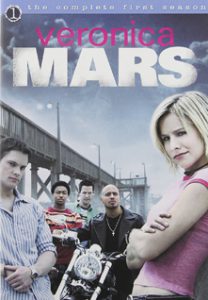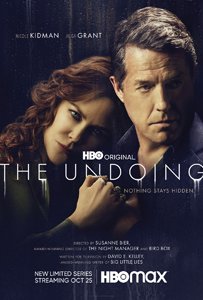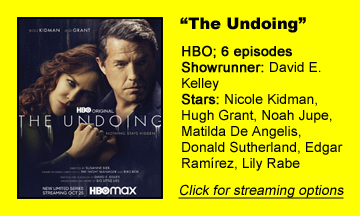David E. Kelley’s ascension from snarky network procedurals to the rarefied air of classy miniseries continues from “Big Little Lies” (2017-19) into the recently wrapped “The Undoing” (HBO). At its foundation, the courtroom-scene writing is the equivalent of a top-shelf arc on “The Practice.”
But this not-boring-for-a-moment six-episode series reaches another level thanks to its additional trappings. Namely, Hugh Grant and Nicole Kidman shine as a husband and wife, Jonathan and Grace Fraser, going through the titular “undoing” of their marriage after he’s accused of murder.
Acting de-emphasizes excesses
“The Undoing” is sharply written by Kelley, working from the 2014 novel “You Should Have Known” by Jean Hanff Korelitz. As he did with “Big Little Lies,” he allows the direction (from Susanne Bier here) and A-list acting to de-emphasize his excesses — although there are some of those, including a final-act twist springing from the treatment of court cases as playgrounds, where everyone looks for a loophole in the rules of the game.
This series is unusually thin on Kelley-esque humor, but there is some, notably the defense attorney, Haley (Noma Dumezweni), who insists “I’m not funny.”
Amid the wintertime chill and bustle of New York City, “The Undoing” explores sociopathy, the question of whether you can truly know another person, and the issue of whether police and the courts can find true justice in an emotionally charged case.
Grant initially exudes his trademark charm as a childhood cancer doctor, then brilliantly segues into layers of emotions as Jonathan is swept into the legal system, including a pre-bail stint behind bars. Grant saves his best for last in a truly grand finale.
Similar to Celeste in “Big Little Lies,” but with more suddenness, Grace deals with a collapsing marriage and the way it brings down her life around it. Bier gives us close-ups of the elegant but disheveled Grace, and we feel offended on Grace’s behalf as she becomes a pariah.
She and her son, Henry (Noah Jupe, “A Quiet Place”), are asked to stay off the grounds of his private school so they won’t be a distraction. We see that institutions will sacrifice innocents, if they are troublesome, to the god of optics.
A breakout star
While “The Undoing” is a reminder of Grant’s and Kidman’s greatness, the breakout star is Matilda De Angelis, coming over from Italian films. Her character, Elena Alves, is a beautiful piece of art as much as she’s a murder victim; she doesn’t speak much but she exudes sadness like a Renaissance portrait.
Dreamy flashback cuts representing Grace’s thoughts of Elena remind us of the woman’s haunting uniqueness, from her casual nudity to her own skill at portrait painting. Grace doesn’t have to be sexually attracted to women to fall under Elena’s spell just as her husband did.
The series is unusual among murder mysteries in that Jonathan is the only suspect, as presented to the jury by the prosecution and as presented to the viewer by Kelley and Bier. Yet Jonathan couldn’t have done it, because – while he is a liar and cheater – he has no history of violence.

This isn’t a flaw, but rather an intriguing approach: We examine other suspects not based on clues but based on personalities. Just as we ask “Is Jonathan capable of a vicious murder?,” we ask the same of everyone else in the small main cast.
All about the people
Able support comes from Donald Sutherland as Franklin Reinhardt, Grace’s father who sees Jonathan as a monster (“mone-star” in Sutherland-ese) based on the murder he’s accused of. Henry desperately wants his family to stay together, but he’s also obsessed with news pundits’ analysis of the trial.
The victim’s husband, Fernando (Ismael Cruz Cordova) was busy taking care of two children at the time of the killing, but he has the motive of anger at his cheating wife. He’s scowling even in the calmest moments.
“The Undoing” is by its very nature a murder mystery that’s all about the people. One segment calls to mind the slow-speed highway chase from the O.J. Simpson case, and it’s a telling parallel because this series is ultimately a deep dive into sociopathic evil.
But because sociopathy is a hidden condition, knowing the theme doesn’t mean we know whodunit.


